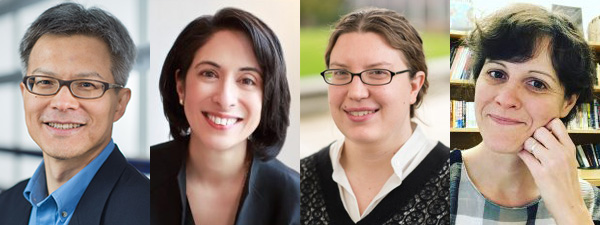
Leo Shin (History; Asian Studies)
“Documenting the Hong Kong Protests”
All eyes are now on Hong Kong. Since the fall of 2014, when the so-called Umbrella Movement once again brought the former British colony to the world’s attention, the city of 7.5 million has undergone transformations that could—even to those less inclined to be dramatic—be described as precipitous. While academics and non-academics alike will continue to debate about the sources as well as impacts of the changes that are taking place in Hong Kong, what is clear is the imperative to document such transformations. The project I am undertaking is relatively modest. With the help of a student research assistant, I will produce and curate an annotated catalog of a range of Hong Kong protests-related documentaries, podcasts, and multimedia journalism that are available in English. My goal is to create a publicly accessible archive that could be used for research and teaching by colleagues and students all over the world.
Minelle Mahtani (Institute for Gender, Race, Sexuality & Social Justice)
“Radical Reciprocity: Mapping the Geographies of Inspiration in Critical Canadian Studies”
How do we acknowledge those who inspire us? This project maps out the nests of care that have supported our scholarly pursuits as researchers working in the field of social justice in critical Canadian Studies. It involves interviewing academics working in the social justice field, mostly at UBC. As a former President of the Association for Canadian Studies (where I won an award from the Canadian Race Relations Foundation for my contributions) I learned that no idea ever emerges isolated on its own. Our research directions flourish in part because of our connections with others and by recognizing those whose work we stand on—those who inspire us to be the best academics we can be. By asking key critical Canadian Studies scholars about the article or work that inspired them to pursue a career in critical Canadian Studies, this project will map out an emancipatory epistemic logic—a different way of understanding the foundations of knowledge production in Canadian Studies that go beyond extraction. The final product will be a podcast series, highlighting these interviews culminating in a book project where the interviews will be transcribed along with an introduction and conclusion curated by me along with a series of high-profile pieces in top Canadian magazines.
Katherine Bowers (Central, Eastern & Northern European Studies)
“Dostoevsky’s The Double: An Open Access Literature-Twitterature Edition”
The project will create an open access teaching edition of Dostoevsky’s 1846 novella The Double that juxtaposes a public domain translation of the text and tweets from the @YakovGolyadkin Twitter project on facing pages. The edition will include a scholarly introduction and an appendix of teaching materials. The project aims to use new media to engage students in close analysis of the text and will provide tools for instructors to use to incorporate close reading through Twitterature in the classroom.
Colleen Laird (Asian Studies)
“OER Video Series on Japanese Women Directors”
The proposed project, to develop a series of Open Education Resource videos on Japanese women film directors, is intentionally linked to the timed progress of my book project, Sea Change: Japan’s New Wave of Women Film Directors. In this public facing endeavor, I connect my own work to a larger movement of emergent scholarship with the aim of informing a new public perception and understanding of Japanese cinema. Drawing on my experience in the past three months producing OER videos on Japanese Horror films for higher-ed classrooms as digital alternatives to traditional lectures, the proposed series will feature interviews with scholars working on Japanese women directors, relevant film summaries and trailers, integrated stills and film clips, and educational “wrappers” that offer suggestions for further reading, further viewing, and classroom discussion questions. All videos will be captioned in English and Japanese, and hosted online under a Creative Commons license for viewing by general audiences.